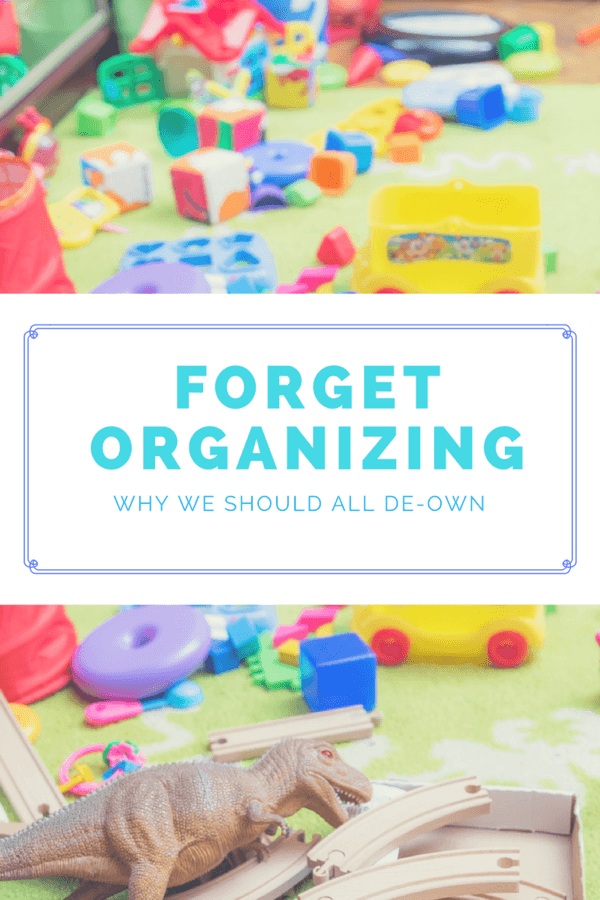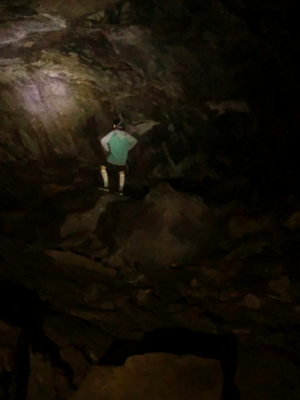
Do you ever wonder why you have so much “stuff”?
Every day I clean the house – cleaning seems to be a never-ending thing. Pick up, sort, put away, only for one of my five to tear it back apart and mom to have to do it again. And of course, it’s never dad that picks up.
Always mom.
This week I cleaned closets and the kids rooms – and as I finished, I figured I’d do the toy box too. The best time to do that is when everyone is in school and sleeping – then they can’t see what’s getting tossed (or, donated). Right?
As I stood (yes, stood..) in the toy box with toys up to my knees, all I could think was “HOW did we get all this stuff?”
Especially because we don’t buy the kids toys for Christmas…. we certainly don’t buy toys during the week. Where did all of these toys come from? How did we inherit so many?
Then I work my way to the kitchen – full cabinets, drawers, overflowing pantry of “stuff” – baking stuff, containers, baskets, bins… the list goes on, and on. As I filter through it all and take what we don’t use to the garage, I can’t help but ask myself the same question. How did my husband get so much stuff? From a treadmill to strollers, to not just one but three sets of clubs, sewing machines, tool box, the list could go on.
Wait… did I say husband? Some of that stuff is mine too… ;) I’d be lying if I said it wasn’t.
I’ve been thinking about this quite a bit all week. We are drowning in stuff. We keep taking in more and more stuff (birthdays, holidays – if not us, then relatives don’t help with that!, even store sales). Rarely, however, do we find an opportunity to discard or donate.
What we really have a problem with is vehicles. We are car fanatics, so we have vehicles that are taking up space at home, all garage spaces are full, driveway is full, side yard is full and as much as my husband LOVES working on cars, he works too much to want to do an mechanic work.
So the cars sit there, and prevent me from using my garage and side yard. Then stuff overflows into the house.
What happens then?
We make a board (or, few boards) on Pinterest to help us organize that stuff – bigger containers, “tricks” to organize all that stuff. But organizing simply isn’t going to cut it – it’s only a temporary solution.
We must fix the actions that cause us to repeat the same habits, over, and over, and over again. We must buy less. Organizing in itself is nothing but rearranging – it’s a cosmetic fix for a deeper problem. In fact, organizing has it’s issues too:
It doesn’t benefit others. After all, those things shoved in our extra bedroom, attic or garage do nothing to help the people that could truly benefit from them. Right?
It doesn’t help our financial problems (debt, spending). It doesn’t attack the REAL issue behind the accumulation of things. Is it because we are missing something in our life that we are trying to spend to make up? Organizing things costs money – even if you shop at the Dollar Store, you are spending money to rearrange “stuff” that you may or may not have needed in the first place.
It doesn’t help us curb the urge to spend. Sure, we can buy all the containers to rearrange and make a ton of pinterest boards, but the actual organization of “stuff” doesn’t necessarily fix the root of the problem: our desire to buy. If happiness is not the result of material purchases, then why do we keep buying things?
It doesn’t help us find the root of the problem. Which essentially means that it doesn’t help us really evaluate our lives. Rearranging things will help us establish a better appearance (cosmetically) to all the stuff we have – and in some cases, encourage us to hop on Facebook and mention that we spent ALL day organizing a room (good job to us!) – but it’s nothing but a signal that you haven’t sat down and evaluated the reason why you have all those things.
Removing all those unwanted items forces you to ask yourself what’s truly important – finding the value (if anything) in those things and if no value, then why we have those things in our life at all.
Removing those unnecessary items from our home helps us accomplish these issues, above. Furthermore, it helps us find a permanent action – the items go to someone who needs the item, someone who can put the item to use.
For some of us, downsizing to fewer possessions may help us come to the realization that more stuff isn’t necessary – that there is a happiness and freedom in owning less. And that in itself might be the life change that we need.




Leave a Reply
You must be logged in to post a comment.